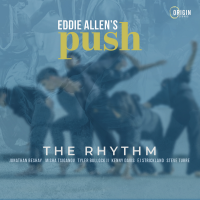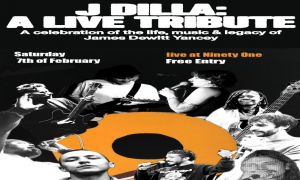Beloved by pianists for his abundant legacy, he is cherished by countless others for the teeming worlds of color and emotion he conjured. The classical music critics of The New York Times have combed through the many recordings devoted to Chopin and selected their favorites.
Anthony Tommasini
HOROWITZ PLAYS CHOPIN, VOL. 1 Vladimir Horowitz, pianist (RCA Gold Seal 7752-2-RG; CD).
MAZURKAS Arthur Rubinstein, pianist (RCA Red Seal 09026 63050-2; two CDs).
PIANO CONCERTOS NOS. 1, 2 Krystian Zimerman, pianist and conductor; Polish Festival Orchestra (Deutsche Grammophon 459 684; two CDs).
TUDES Murray Perahia, pianist (Sony Classical SK 61885; CD).
CHOPIN: THE COMPLETE RECORDINGS Dinu Lipatti, pianist (EMI Classics 5 86826-2; two CDs).
FOR the most part Vladimir Horowitz is not among my preferred Chopin pianists. His performances, though always brilliant, tend to be quirky. But once in a while he nailed a piece, as with Chopins Andante Spianato and Grande Polonaise, recorded in New York in 1945, one of the most astonishing piano recordings ever made.
Though perhaps not top-drawer Chopin, this piece is a knockout. In the opening andante, a tender, songful melody is spun over a rippling accompaniment. Then, with a fanfare flourish of leaping chords, the piece breaks into an exuberant, shamelessly showy polonaise. Horowitz gives an uncannily articulate and beguiling performance, dispatching the right-hand runs with breathtaking fleetness and delicacy, and lending bounce and crispness to the dancing accompaniment. The way he will gently nudge a crucial left-hand note to anticipate some harmonic turning point is awesome.
Now and then he makes a tiny slip. Clearly, he did not care. He knew listeners would be bowled over. The performance has been reissued many times, here in a release that also offers Horowitz in various live Chopin performances, all fascinating, recorded between 1979 and 1982.
The pianist who has won the broadest consensus for his exemplary Chopin is probably Arthur Rubinstein. He emerged when the use of expressive rubato and Romantic liberties in Chopin was rampant. In that context he was a model of refinement and taste, with no loss of rhapsodic fancy and imagination. You can trust him in any Chopin. And as a proud Polish artist playing Chopins mazurkas, which evoked a Polish dance form, he was unrivaled. I especially love his later recordings of the 51 Mazurkas, made in 1965 and 1966, when he was nearly 80. Even in the sprightly mazurkas his playing is subtly melancholic and mystical.
A pianist who can play the 24 Chopin tudes can play anything. People may not think of Murray Perahia, that poet of the keyboard, as a dazzling virtuoso type. But he conquers the tudes on his stunning 2002 release, while bringing out the musical riches of these milestone piano pieces.
More than a decade ago the formidable Polish pianist Krystian Zimerman, tired of hearing everyone trash the orchestrations of Chopins two piano concertos, decided to do something about it. He formed a special touring ensemble of excellent younger musicians, the Polish Festival Orchestra, and worked in detail to uncover the complexities and inventive touches in Chopins orchestra writing. Playing and conducting from the keyboard, he performed the two concertos on tour and recorded them in 1999. The performances are revelations. Here again Mr. Zimerman shows himself to be one of the finest pianists of our day.
Then there is the magnificent Dinu Lipatti, who was just building his recorded legacy when he died of cancer in 1950, at 33. A musician of uncommon sensitivity and intelligence, he was an exquisite Chopin player. His complete Chopin recordings have been issued in a two-disc set, including the First Piano Concerto, the Third Sonata, the 14 waltzes, selected nocturnes and mazurkas, and an incomparable account of the deceptively complex Barcarolle.
Allan Kozinn
PRELUDES Alexandre Tharaud, pianist (Harmonia Mundi HMC 901982; CD).
PIANO CONCERTO NO. 1, SOLO PIANO WORKS Emanuel Ax, pianist; Orchestra of the Age of Enlightenment, conducted by Charles Mackerras (Sony Classical SK 60771; CD).
BALLADES, BARCAROLLE, FANTAISIE Jorge Bolet, pianist (Decca 417 651-2; CD).
PIANO SONATA NO. 3, OTHER WORKS Yundi Li, pianist (Deutsche Grammophon 471 479; CD).
TUDES Vladimir Ashkenazy, pianist (Decca 414 127; CD).
IF you think that works as familiar as the Chopin Preludes cannot sound fresh, compelling, even revolutionary, listen to the live-wire traversal by the French pianist Alexandre Tharaud. Inspired at least partly by Schumanns description of the Opus 28 Preludes as eagles pinions, wild and motley pell-mell, Mr. Tharaud gives each of these little pieces a painterly and often dramatic reshaping, toying with tempos and coloration, and reconceiving the set as a sort of Chopin-esque Pictures at an Exhibition.



























